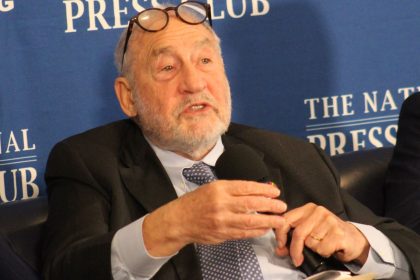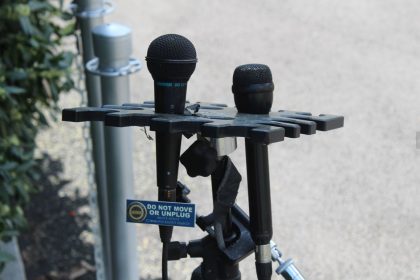Recalling the Pentagon Papers Case, 50 Years On (Part Two)
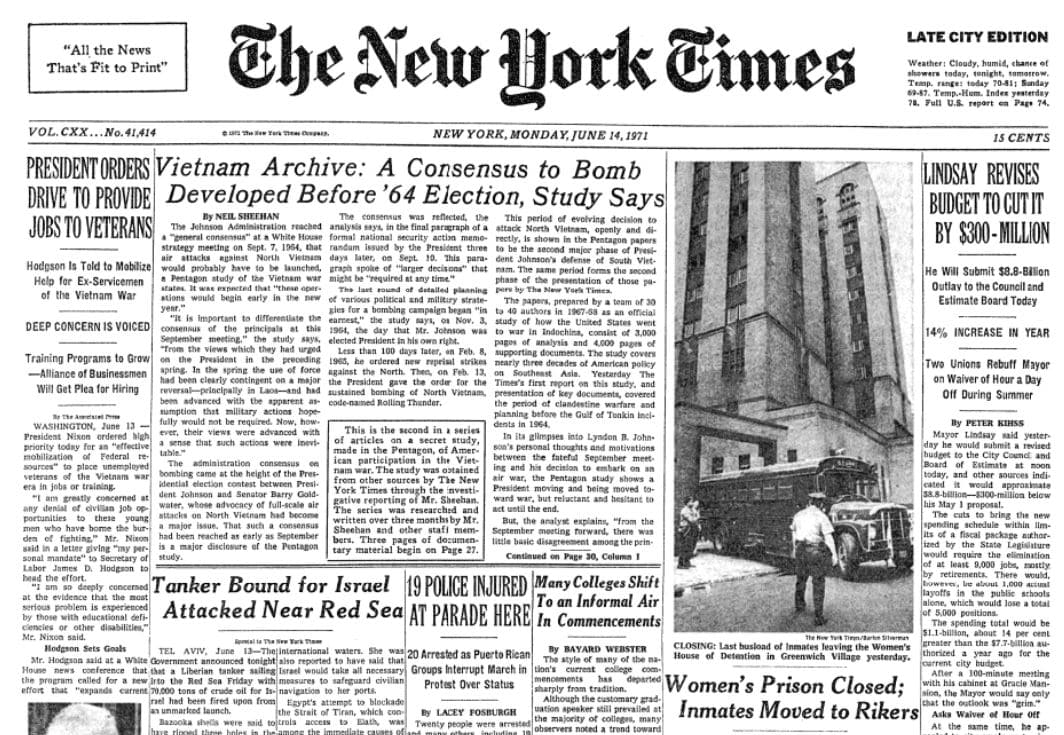
(This is the second part of a four-part series. The first installment can be read here.)
To Publish or Not to Publish
Upon his return to Washington, Sheehan and an editor booked a room at the Jefferson Hotel, where they spent weeks reading and summarizing the documents.
Eventually, they were summoned to New York to brief the newspaper’s top editors. But the initial response of the editors at The Times headquarters on West 43rd Street in Manhattan was anything but congratulatory.
The material covered in the papers went back as far as the Truman administration and ended just before the start of the Nixon administration.
Fearing sorting through the papers would quickly become a quagmire for the reporters assigned to do it, Times Washington Bureau Chief Max Frankel, reportedly dismissed the whole effort as “a mammoth reading job” that would turn up little.
Frankel’s position changed, however, as reporters and editors, mostly to satisfy their own curiosity, began combing through Sheehan’s trove of material.
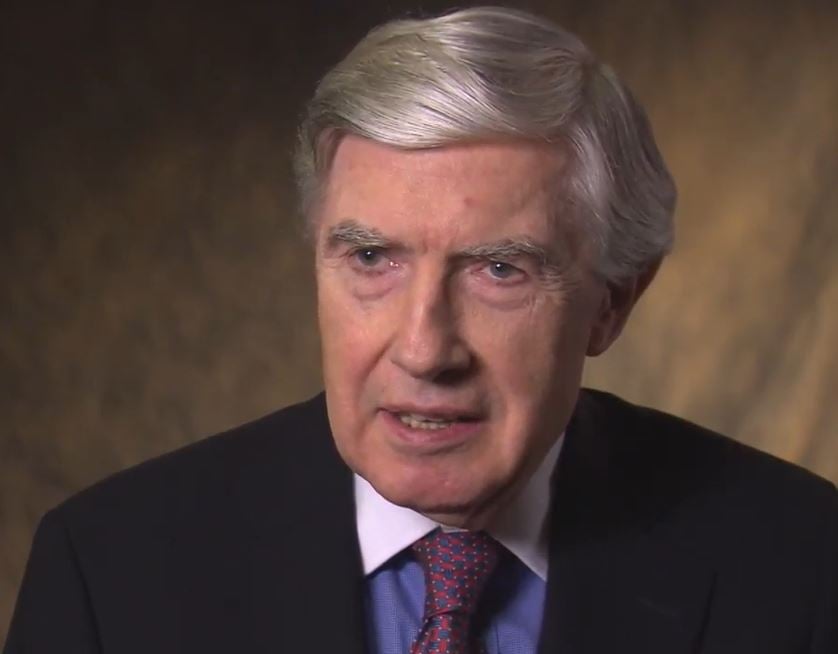
What they found was an extended narrative in startling detail of just how the United States had become entangled in Vietnam, how American lives were being lost in an effort most of the leaders involved had conceded was futile, and how the government had repeatedly concealed vital information about the war from its own citizens.
It was, Frankel later admitted, “a gold mine.”
Sheehan and an editor were secretly installed in a suite at the New York Hilton to continue working. To ensure their privacy, a security guard was placed at the door.
Eventually, according to The Times Pulitzer Prize submission that year, 44 writers, editors and researchers were put to work in the suite, analyzing the information and comparing it to official statements from the government and actual decisions that had been made.
But despite all this effort, editors and executives at the highest level of the newspaper continued to debate whether to publish a word about them.
Then-Managing Editor A.M. Rosenthal needed repeated assurances that the tale contained within the documents was accurate; James Goodale, the newspaper’s general counsel, raised questions about the legality of printing the accounts contained in the reports.
When he sought the advice of Lord, Day and Lord, The Times’ outside counsel, the firm came down firmly on the side of not publishing “stolen” secret documents.
Goodale’s own view was mixed. Though he had concerns, he nevertheless disagreed with the outside counsel. It wasn’t that clear cut a decision.
In addition, he’d received assurances that the content of the papers had no bearing on ongoing military operations, which opened the door to publication in his view.
In the end, his strongest feeling was that if The Times proceeded with publishing the contents of the papers, the Nixon administration would stop all but the initial articles through an injunction. Still, that was no reason not to go ahead with the stories you could get published.
By this time, Times publisher Arthur Ochs Sulzberger and his second-in-command, Harding Bancroft, were involved and both were also against publishing the papers, based mostly on the advice of the partners at Lord, Day and Lord.
Goodale prepared a brief that argued for publication.
Finally, with just days to go before a scheduled trip to London, Sulzberger asked to see the draft of Sheehan’s proposed first story. Initially unimpressed with the lack of polish in the writing, Sulzberger declined to immediately approve the piece for publication.
Two days passed as he considered his final decision. Then he called Rosenthal. The Times would publish its Pentagon Papers series, so long as Bancroft reviewed and approved each article beforehand.
Sulzberger left for London the morning the first piece appeared on The Times front page.
Nixon Cajoled into Fight
No fan of the press on his best day, Nixon is said to have been mildly annoyed the morning of June 13, 1971, when he saw that The Times chose to keep most of its coverage of his daughter’s wedding off the front page.
At the same time, handwritten notes of chief of staff, H.R. Haldeman, and transcripts of recordings captured by the White House taping system reveal he paid little to no attention to the rest of what was reported above the fold that day.
In fact, it was only after noon that day that the piece and its potential consequences appeared to begin to register at the White House, during a phone call between Nixon and Alexander Haig, then an assistant to National Security Advisor Henry Kissinger.
Nixon initially asked Haig about the previous week’s casualty figures from Vietnam.
It was only after that bit of conversation lagged that Nixon asked, “Nothing else of interest in the world today?”
“Yes sir. Very significant,” Haig said in the clipped way that came with years of military service. “This, uh, goddamn New York Times expose of the most highly classified documents of the war.”
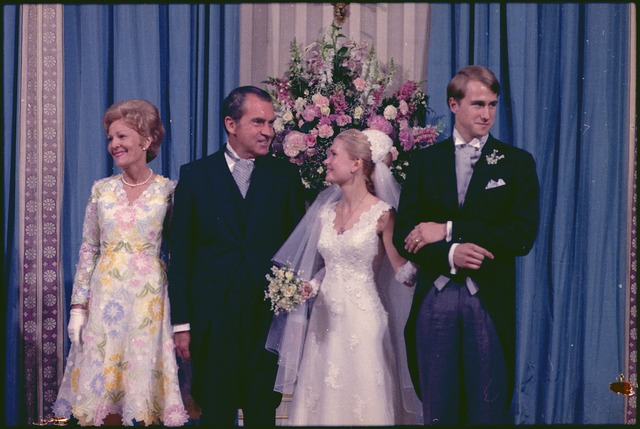
“Oh that,” Nixon responded casually. “I didn’t read the story … but was it leaked out of the Pentagon?”
“This is a devastating security breach of the greatest magnitude of anything I’ve ever seen,” Haig responds, almost breathless.
“Well, what’s being done about it? Did we know it was coming out?”
“No, we did not, sir,” Haig said.
With that, Nixon seemed to almost want to console the excitable Haig.
“Let me ask you this, what’s [Secretary of Defense Melvin] Laird going to do about it? I’d just start right at the top and fire some people. I mean, whoever, whatever department it came out of, I’d fire the top guy.”
“I’m sure it came from defense and I’m sure it was stolen at the time of the turnover of the administration,” Haig said.
“Oh, it’s two years old then,” Nixon said, almost brightening.
Both men agreed the report is most damning for the Democrats and particularly, to Nixon’s apparent delight, his one-time rival for The White House, John F. Kennedy.
“They’re going to end up in a massive gut-fight in the Democratic party on this thing,” Haig predicted.
Nixon’s initial lack of concern appeared to be justified when, later that Sunday, Defense Secretary Melvin Laird was not asked a single question about the report during an appearance on NBC’s “Face the Nation.”
By the time Nixon spoke to Henry Kissinger later than afternoon, he’d convinced himself The Times ran the story to improve the odds of passage of the so-called McGovern-Hatfield amendment in the Senate.
Scheduled to be debated the following week, McGovern-Hatfield, an amendment to an appropriations bill, would have required the end of United States military operations in the Republic of Vietnam by Dec. 31, 1970 and a complete withdrawal of American forces halfway through the next year.
It has been proposed by Sens. George McGovern, D-S.D., and Mark Hatfield, R-Ore., and was known as the “amendment to end the war.”
“In public opinion, [the Times report] actually, if anything, will help us a little bit because this is a gold mine of showing how the previous administration got us there,” Kissinger said early in the conversation. “It shows the mismanagement … and pins it all on Kennedy and Johnson.”
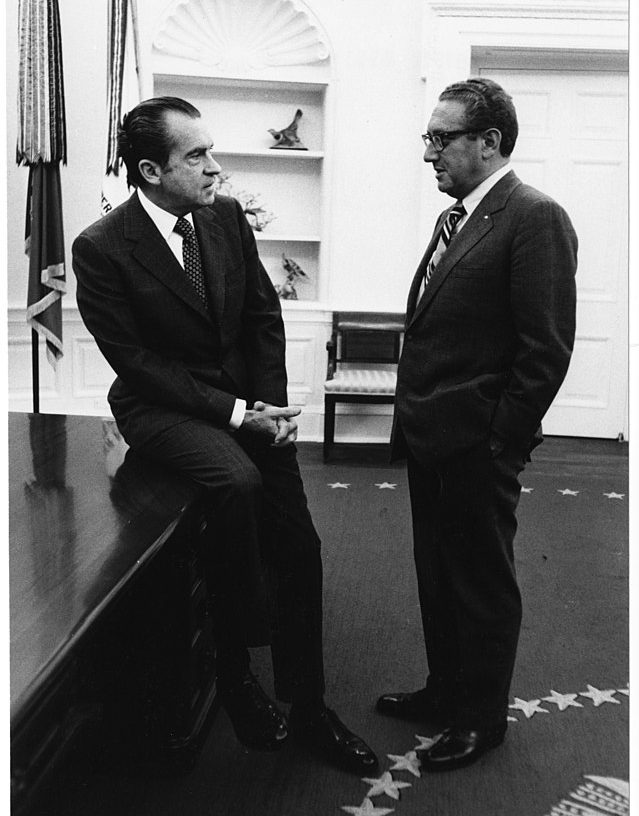
Nixon responded with laughter.
“I think they outsmarted themselves … because they had sort of tried to make [Vietnam] Nixon’s war, and what it proves is that, if it’s anybody’s war, it’s Kennedy’s and Johnson’s,” Kissinger said.
But Nixon’s demeanor changed abruptly at this point.
“It may not have had the effect intended … the thing though Henry, is that to me it is just unconscionable. This is a treasonable action on the part of the bastards that put it out,” Nixon says.
“Exactly, Mr. President,” Kissinger says.
“Does it involve secure information, a lot of other things? What kind of people would do such things?” Nixon, now incredulous, asked.
“It has the highest classification,” Kissinger said.
“Yeah, yeah,” Nixon replied.
“It’s treasonable, there’s no question it’s actionable. I’m absolutely certain that this violates all sorts of security laws,” Kissinger says.
Nixon by now was stammering.
Kissinger, perhaps to cool the temperature in the room, reiterated his earlier statement that The Times reporting of the Pentagon Papers wouldn’t hurt the president domestically, but he added “the impact they’ll have with ongoing negotiations with North Vietnam is another question.”
“Because it shows just how far our demoralization has gone,” Kissinger said.
“Good God,” Nixon replied.
Though they don’t say so in so many words, it quickly becomes clear that both Nixon and Kissinger are worried about the same thing — that whoever leaked the documents could have more — a cache that might reveal Nixon’s secret effort to sabotage peace talks with Vietnam just before the 1968 election … or one that cast a spotlight on Nixon’s decision to secretly bomb Cambodia.
At one point Nixon told Kissinger, “I asked Haig about that … and he says as far as the White House is concerned, we’re pretty damned secure.”
Kissinger reminded the president his files would leave with him when he left the White House and could be likewise kept secure in the Nixon Library.
“That’s right,” Nixon said, but he was also well aware the secretaries of state and defense had their own files on covert actions that were carried out.
“They’ll indicate what I’ve ordered …” Nixon said.
“They’ll indicate what you have ordered, but they weren’t in on the reason,” Kissinger said.
“Yeah, let’s not worry about that,” Nixon said.
A Fateful Decision
But the president by then clearly was worried. Every conversation he’d had played on his deep sense of paranoia over the press and the leaker who went public with the classified documents.
By Monday afternoon, when he met with Haldeman in the Oval Office, Nixon was in a lather.
“Neil Sheehan of the Times is a bastard; he’s been a bastard for years [when it came to] Vietnam,” Nixon said.
Haldeman told the president he had been able to confirm The Times had the Pentagon Papers for at least three months, and that a team of reporters and editors had been hunkered down all that time, reviewing them.
“Boy, if I were the publisher of a … great newspaper, I wouldn’t print this stuff … top secret information,” Nixon groused. “I mean … what’s the use of a classification system … why the hell do we classify anything … if a newspaper feels no compunction about printing it?”
Haldeman suggested the motivation behind such conduct “must be that it hurts the government.”
“[Donald] Rumsfeld [then-counselor to President Nixon] was making this point this morning,” Haldeman continued. “To the ordinary guy, all this is a bunch of gobbledygook. But out of the gobbledygook comes a very clear thing — you can’t trust the government.

“You can’t believe what they say. You can’t rely on their judgment. And the implicit infallibility of presidents, which has been an accepted thing in America, is badly hurt by this … because It shows that people do things the president wants to do even though it’s wrong, and the president can be wrong.”
Yet for all this, Nixon remained unsure of what to do until early in the evening.
The turning point came during a 7 p.m. telephone call with John Ehrlichman, the president’s domestic affairs advisor. Ehrlichman had spoken to the attorney general who said he’d been advised by Justice Department staffers that unless the administration put The Times on notice, right away, it would waive its right to prosecute.
“Hell, I wouldn’t prosecute the Times,” Nixon told Ehrlichman as he described the conversation. “My view is to prosecute the goddamn pricks that gave it to them.”
“Yeah, if you can find out who that is,” Ehrlichman said.
The advisor then went a step further.
“I’d kind of like to have a cause of action against them in the sock, in case we needed it,” Ehrlichman said. “I’d hate to waive something as good as that.”
Nixon called John Mitchell.
“What is your advice on that Times thing, John? Would you like to do it?” he asked.
“I would believe so, Mr. President, otherwise we will look a little foolish in not following through on our legal obligations,” Mitchell said.
“Has this ever been done before? Has the government ever done this to a paper before?”
“Yes, we’ve done this before,” Mitchell assured the president.
“So how do you go about it?” Nixon asked.
“Low key … you call them and then send a telegram to confirm it. You say we’re just examining the situation and we are simply putting you on notice that you’re violating a federal statute.”
At this point, White House transcripts show, a second call came in from Kissinger, who had heard from Walt Rostow, former President Johnson’s national security advisor.
“Rostow, on behalf of Johnson, said that it is Johnson’s strong view that this is an attack on the whole integrity of government … that if whole file cabinets of material can be stolen and then made available to the press … you can’t have an orderly government anymore.”
Mitchell then decided to drop a bombshell, right at the very end of the call.
“We’ve got some information we’ve developed as to their documents and who is likely to have leaked them,” the attorney general told the president and the secretary of state. “The prime suspect, according to your friend Rostow, who you’re quoting, is a gentleman by the name of Ellsberg, who is a left winger that’s now with the Rand Corporation, who also have a set of these documents.”
“Subpoena them. Christ get them,” Nixon said.
(The story of the Pentagon Papers continues with the White House seeking to enjoin further publication.)


















